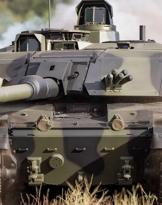The Department of Defense - the note reads - announced the consolidation of some US infrastructures in Europe and the return to the host countries of fifteen sites. A decision that will allow savings of at least 500 million dollars a year.
The bases that will see a partial or total closure are those currently located in the United Kingdom, Germany, Belgium, Holland, Italy and Portugal. According to Defense Secretary Chuck Hagel, this is not a reduction of the US military capacity in Europe, but "a necessary transformation that will help maximize our military capabilities in function of our important European and NATO partnerships" (to be cynical , it would seem to mean "now start protecting yourself").
According to the Department of Defense, the reduction in the number of American military bases in Europe will not have an effect on the "European Reassurance Initiative", launched by the United States to increase the military capabilities of its allies in Eastern Europe in the context of the Ukrainian crisis.
 The United States has military installations throughout Europe. Bulgaria, Germany, Italy, Greece, Spain, the Netherlands, Portugal and the United Kingdom host various departments of the US Army, US Navy and Air Force as well as the Marine Corps' rapid intervention forces.
The United States has military installations throughout Europe. Bulgaria, Germany, Italy, Greece, Spain, the Netherlands, Portugal and the United Kingdom host various departments of the US Army, US Navy and Air Force as well as the Marine Corps' rapid intervention forces.
It is however undeniable that the news had perfect timing. The desire to close fifteen bases in Europe, in fact, comes a few hours after the decision to create, at the Lakenheath base of the RAF, in England, the first permanent Joint Strike Fighter Group. Two squadrons of F-35 and 1200 men from the JSF program will arrive at the Lakenheath base in the 2020. Consequently, Mildenhall's base, still in England, will be closed and its US military 3200 deployed today will return home. The decision to create the first permanent Joint Strike Fighter Group in England - they write from the Department of Defense - will bring more opportunities for collaboration, training and support between the United States and the United Kingdom.
The USA will abandon the bases of the RAF of Mildenhall (command of the US special forces with the 352 ° Special Operations with military 3200 in total) Alconbury and Molesworth. All operations will focus on the Croughton RAF base. According to the Department of Defense, American troops in Europe will settle on the 67 thousand units.
Germany and Italy will receive more troops, although some years are expected before the new Pentagon deployment is concluded.

The closure of the bases and the subsequent deployment will cost, according to the 1,4 Department of Defense billions dollars. It is certain that the German bases of Ramstein and Spangdahlem will receive other planes and personnel. In addition to the many tasks it performs, the Ramstein base, one of the busiest airports in the US Air Force, will also receive 15 KC-135 Stratotanker and about 700 men from the 100 ° Supply Wing set in Mildenhall.
The special operations command will go to Spangdahlem, where ten CV-22 Ospreys and ten MC-130Js will be deployed in addition to the associated personnel from the 352 ° Special Operations Group.
The 606 ° Air Control Squadron and 300 men of the Spangdahlem staff will be transferred to Aviano, so as to free up space in the German base for the arrival of special forces. Lakenheath will host the F-35 starting with the 2020, but at least until the summer of the 2016 it will keep the F-15. It should be noted that at least until the 2025, Aviano will not host the F-35 USA, but it remains a valid option for the future.
As for the Army, the decision is to close only the small outposts and not the important operational centers. Certain the suppression of two brigades in Bamberg and Schweinfurt in Germany, while in Portugal, the Lajes base will be greatly reduced.
Franco Iacch

(photo: US DoD)












